Luxembourg: an emerging hub for SpaceTech startups
When someone mentions Luxembourg, the first thing that usually comes to mind is its reputation as an international financial center, and it's not uncommon to imagine a tiny country full of banks, investment funds, and bankers drinking coffee while reviewing endless charts. But Luxembourg is much more than numbers and fancy suits. In recent years, the country has made a strong commitment to becoming a true hub of innovation, especially in visionary fields such as SpaceTech.
This article dives into the startup ecosystem in Luxembourg, a constantly growing community that shows that not everything revolves around capital investment. In the Grand Duchy, the language of innovation, cutting-edge technology, and ideas that literally seek to go beyond the Earth's atmosphere is also spoken.
Within this vast ecosystem, we will explore the Luxembourg SpaceTech startup sector, an industry that is revolutionizing access to, use of, and exploitation of space and its resources. We will then explore who is making this space revolution a reality in Luxembourg, highlighting the main players and startups that are leading the country to conquer new frontiers beyond Earth.
adwäisEO

To kick off the list of Luxembourg space startups is adwäisEO, a company based in Betzdorf and founded in 2015, specializing in IT services for satellite Earth observation and geospatial data analysis. The main drivers of the company include François-Régis Martin-Lauzer and Odile Fanton d'Andon, who have extensive experience in the space and scientific sectors.
adwäisEO's business proposition focuses on offering advanced services for the management, storage, processing, and distribution of huge volumes of satellite data by providing intuitive geoportals, HPC (High Performance Computing) infrastructures, and highly scalable cloud solutions. They are a European benchmark in the management of multi-petabyte archives and satellite big data, as well as in the development of algorithms to transform this data into useful information for governments, space agencies, institutions, and companies.
Its relationship with the space industry is fundamental, as it manages key infrastructures for ESA Sentinel missions and participates in large-scale projects for the archiving, processing, and democratization of space data.
Blue Horizon

Blue Horizon is a company based in Betzdorf, like the previous company, and was founded in 2017 on the initiative of several members of the life sciences team at OHB System AG, one of Europe's largest space groups.
The company specializes in bioengineering and life sciences solutions for both the space industry and terrestrial applications. It develops products and services that include bioreactors, technologies for revitalizing arid soils using biological soil crusts (BSC), and biotechnological support for human space missions and closed habitats, as well as innovations in 3D printing with renewable materials, environmental monitoring, and remediation of degraded soils.
Blue Horizon is widely integrated into the European and Luxembourg space industry, collaborating with the Luxembourg Space Agency and the European Space Agency, and is also involved in pioneering projects such as Green Earth and M4PM (Microgravity for Personalized Medicine).
Maana Electric
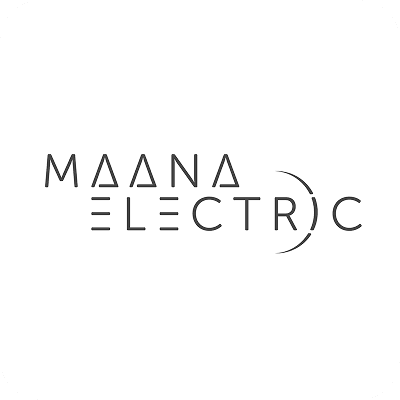
The third startup on the list was founded in 2018 by Joost van Oorschot (CEO), Pablo Alberto Calla Galleguillos (CTO), and Luca Celiento (COO), specialists with extensive experience in space and energy technology. Their main objective is to develop technologies to produce silicon and solar panels in a sustainable manner for both terrestrial and space applications.
Maana Electric's value proposition encompasses ISRU (In-Situ Resource Utilization) technologies capable of transforming low-value raw materials such as desert sand and lunar regolith into silicon, aluminum, iron, and other metals that are essential for solar energy production. The company has several innovative lines, such as its green silicon (without carbothermal reduction) and eco-friendly HTJ cells that minimize emissions and the use of hazardous chemicals. In addition, there is TerraBox, another noteworthy project consisting of a modular mini-factory designed to manufacture solar panels in remote environments.
In the space sector, Maana Electric is also promoting projects for the extraction of metals and oxygen on the Moon and developing infrastructure to simulate lunar conditions, such as ESRIC's Dirty Thermal Vacuum Chamber project.
Mission Space
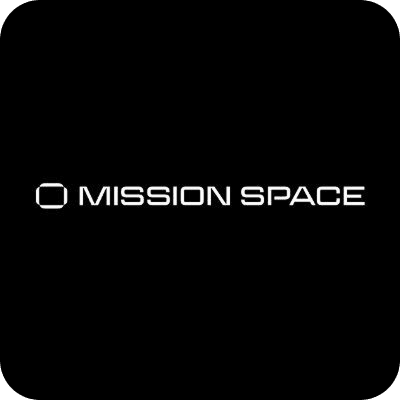
Mission Space, founded in 2021 and located in the capital, focuses on developing advanced space weather forecasting systems. Its main mission is to protect space and terrestrial assets from the risks posed by solar events such as geomagnetic storms through extremely accurate forecasts. Its real-time predictions are 230% more accurate than existing models, allowing it to offer its customers advance warnings up to 96 hours in advance.
The company was founded by Alex Pospekhov and Alexey Shirobokov, both tech entrepreneurs with experience in the space sector. One of the company's most notable products is its constellation of nanosatellites equipped with the proprietary “Zohar” sensor, which is capable of generating 1,000 times more data than current systems and provides highly localized and personalized forecasts within a radius of 500 km2.
Mission Space's business proposition is to offer space weather monitoring and forecasting services to satellite operators, space agencies, government agencies, and strategic sectors such as defense, aviation, and space tourism. Its ability to anticipate events and provide mitigation strategies helps prevent millions of dollars in damage and improve the sustainability of space infrastructure.
Space Cargo Unlimited
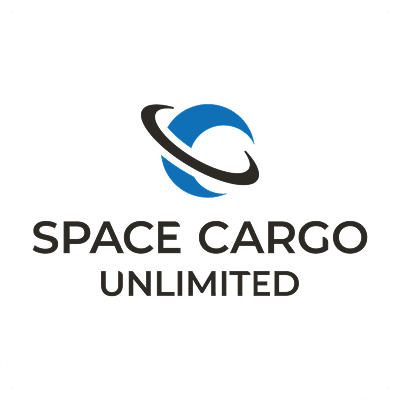
Space Cargo Unlimited was founded just over a decade ago, in 2014, by Nicolas Gaume and Emmanuel Etcheparre. The company specializes in the development and operation of unmanned spacecraft dedicated to research and manufacturing in microgravity. Its main platform, called REV1, is designed as the first returnable and autonomous “space factory” in low Earth orbit.
Space Cargo Unlimited's business model focuses on offering turnkey manufacturing and advanced experimentation services in space for customers in sectors such as pharmaceuticals, biotechnology, and agriculture. Its solutions enable the development of products that are impossible to manufacture on Earth, such as biotechnological medicines, advanced materials and alloys, and new materials for electronics and optics.
Space Cargo manages its own missions and also collaborates with partners such as Thales Alenia Space and ATMOS Space Cargo to operate recurrent and returnable flights with the BentoBox platform (the central module of REV1), whose first commercial mission is scheduled for 2025 and has already attracted considerable interest from industrial and scientific customers.
ODYSSEUS Space

ODYSSEUS Space was founded in 2019 by Jordan Vannitsen (CEO) and Marco Agnan (CTO), two entrepreneurs with experience in the European and Asian space sectors. Its mission is to revolutionize space communications by enabling data transfer at the speed of light between terrestrial and space assets throughout the solar system thanks to laser optical communication solutions.
ODYSSEUS Space's core product is Cyclops™, a Laser Communication as a Service (LCaaS™) system that offers high-speed data transmission from satellites to Earth through a subscription-based model with no upfront costs. This system, based on its own optical terminals and a network of ground stations, allows up to 1 TB of data per day per satellite and is particularly suited to low-orbit microsatellite constellations.
RespectUs
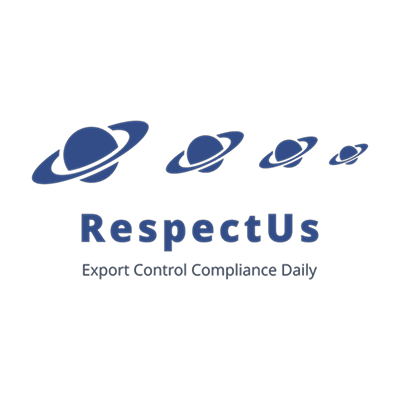
Almost at the end of the list is RespectUs, a Luxembourg-based company founded in 2019 by Patrick Goergen that specializes in digital solutions for export control compliance, with a particular focus on sensitive sectors such as space, technology, and industry.
The company's economic proposal centers on a comprehensive SaaS platform that allows exporters, their suppliers, and banks to manage all stages of regulatory compliance, including product classification against checklists, risk assessment, customer and destination verification, document management, and sanctions monitoring. Its modular system automates complex processes and helps avoid sanctions and business disruptions, which is particularly valuable for companies that export dual-use, defense, or high-tech products, such as those in Luxembourg's space industry.
RespectUs also stands out for having received the “Label Made In Luxembourg” certification, a distinction that highlights RespectUs's constant presence and dedication to excellence in the Grand Duchy of Luxembourg, particularly in the field of export control compliance.
SPARC Industries
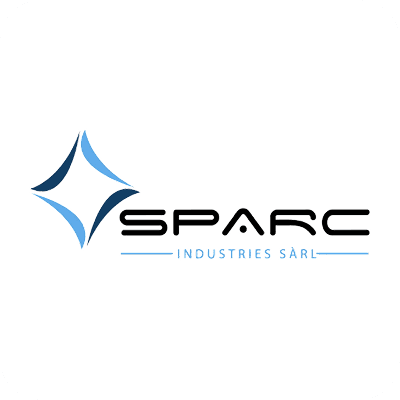
Rounding out the list is SPARC Industries, a company based in Foetz and founded in December 2017 by Dejan Petkow and Thorben Meinardus. Its mission is to transform mobility in space by offering plasma simulation tools and advanced solutions for the electric propulsion of satellites and spacecraft.
SPARC Industries' business proposal is based on two pillars: the development of the VSTRAP plasma simulation software, endorsed by the ESA and aimed at industry, and engineering support and consulting for companies that design and manufacture electric propulsion systems. Thanks to its technology, it can significantly reduce the cost, time, and risk of propulsion developments, enabling manufacturers and operators to improve the efficiency and innovation of their spacecraft.
The company works closely with the European Space Agency, the University of Luxembourg and the Luxembourg ecosystem participating in European research projects and space technology transfer.

Conclusion
The SpaceTech ecosystem in Luxembourg reflects the country's transformation into a key player in the new European space economy. The combination of a favorable institutional framework, initiatives such as the Luxembourg Space Agency, and specific acceleration programs has enabled the emergence of innovative and highly specialized startups, not only in the development of advanced technology but also in high value-added services for sectors such as energy, communications, and space biotechnology.
This article has presented some of the most important startups in the sector, although they are not the only ones and there are undoubtedly other interesting startups that have been left out. However, it gives an idea of how broad the sector is in the country and the strong development of the Luxembourg space industry.
Now, if after seeing so much innovation you also want to join the party and develop a business project in the space sector or any other sector, but you have doubts about how to get started, questions about administrative procedures, or need help in the legal field, remember that EasyBiz is here to help you. Contact us and we can help you make your ideas a reality.



